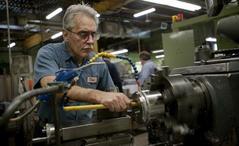
The first two reasons mentioned above are nothing other than generalizations that attempt to sweep the entire age subgroup or multiple age groups into the same category of stagnant, slow and unwilling to learn workers. In reality, many experienced workers are both willing to learn as much or more than their younger peers, and they benefit from their past experience in computer science and other fields as well. They might not be aware of every new gadget or every new social media app that comes out, but they have other qualities that well make up for that "gap". Many older workers are far more responsible and attentive to their work because often have more at steaks - they have families and children who they have to provide for. They also know that if they were to lose a job at an older age, finding a new one would be much harder than to someone who was in his 20's or 30's. Thus, their tend to value their work more than a young hot shot who might be bouncing from one company to another, constantly looking for a better deal. Also, many older workers are quite healthy and they don't take more time off for illness then their younger colleagues.
Age discrimination lawsuits will continue to be filed by employees who feel betrayed and kicked to the curb by their employers, especially in those cases where the older workers are particularly hurt by discrimination because they had a lengthy career at the same company (10 years or more) and they feel they gave so much of their time and their mind to the company. Many age discrimination cases involve a compelling story of a dedicated employee, whose life has been derailed due to a discriminatory firing at a critical stage, and will result in substantial settlement and verdicts in favor of employees.
 RSS Feed
RSS Feed

